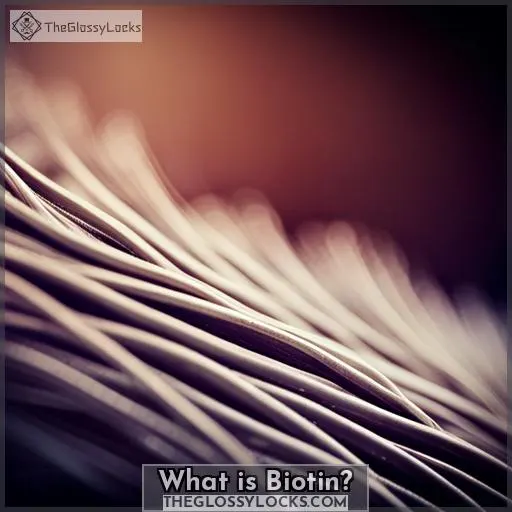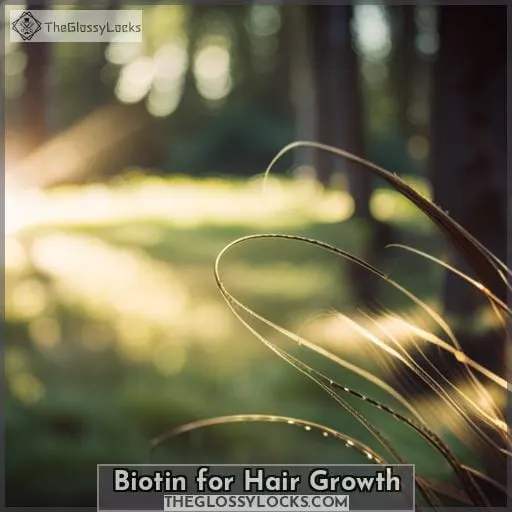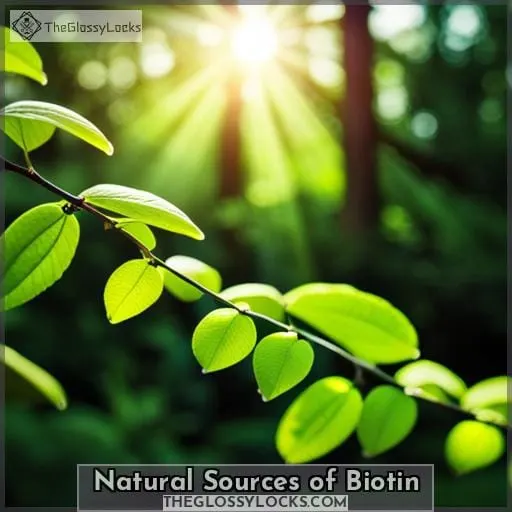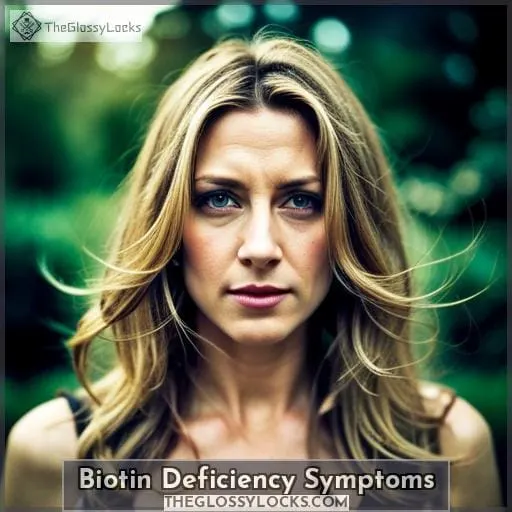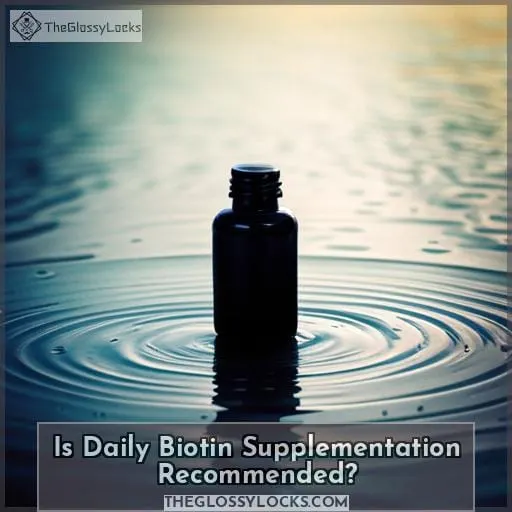This site is supported by our readers. We may earn a commission, at no cost to you, if you purchase through links.
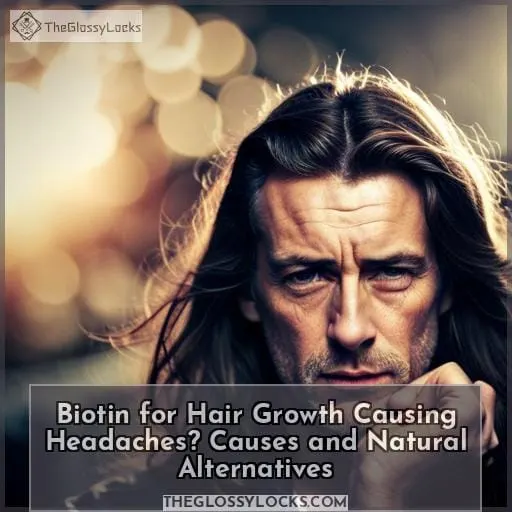 Nearly 40% of biotin users report negative side effects like headaches. As your nutritionist, I want to make sure you get the full hair and nail benefits without the pain.
Nearly 40% of biotin users report negative side effects like headaches. As your nutritionist, I want to make sure you get the full hair and nail benefits without the pain.
Biotin helps grow strong, lush locks by providing nutrients for keratin production. But megadoses come with risks. If you’re dealing with new throbbing headaches after starting biotin, you’re not alone.
Too much biotin can absolutely trigger headaches in some people. The good news is that natural sources like nutritional yeast, egg yolks, and avocados supply plenty for beautiful hair without side effects.
Let’s work together to find the ideal biotin dose for your body. You can achieve gorgeous strands without sacrificing comfort.
Now let’s explore some science-backed biotin and hair growth insights so you can make the most informed decision.
Table Of Contents
Key Takeaways
- High doses of biotin, especially above 10,000 mcg per day, may trigger headaches as a side effect.
- Headaches are more likely to occur when taking biotin supplements compared to getting it from food sources.
- If you experience headaches after taking biotin, consider reducing the dose.
- Consult a doctor if biotin-related headaches persist despite lowering the dosage.
What is Biotin?
Biotin, also called vitamin B7, is a water-soluble nutrient that helps convert food into energy. While it plays a role in the health of hair, skin and nails, research on its beauty benefits is limited.
The recommended daily intake for biotin is 30 mcg. Some supplements provide megadoses of 2,500-10,000 mcg, which may lead to side effects like headaches, digestive upset, skin rashes and distorted lab test results.
If you’re considering taking biotin, speak to your healthcare provider about an appropriate dose based on your needs and history. Start with the lowest effective dose, monitor for side effects, and adjust as needed.
Biotin isn’t a miracle cure, and relying solely on supplements while neglecting overall nutrition and lifestyle factors likely won’t give significant improvements.
Can Biotin Cause Headaches?
Some folks find taking biotin supplements can lead to headaches and migraines in rare cases. While the exact mechanism’s unknown, high biotin doses could potentially trigger headaches in susceptible people.
Typically, adverse effects like headaches only occur at very high doses above 10,000 mcg/day for long periods. Lower biotin doses from food or a basic multivitamin aren’t likely to cause issues. If you get new headaches after starting biotin, try lowering your dose. Of course, headaches can have many causes so discuss recurring issues with your doctor.
To avoid headaches, stick to recommended biotin intakes under 1,000 mcg/day unless directed otherwise by a healthcare provider.
The targeted biotin intake for adults is 30 mcg/day which can easily be obtained from foods like eggs, meat, fish, nuts, seeds, sweet potatoes, and spinach. Supplemental biotin’s beneficial for those with a deficiency but too much may lead to unintended effects.
While biotin’s crucial for hair, skin and nail health, taking megadoses doesn’t necessarily improve growth substantially in healthy people. If considering biotin supplements for beauty purposes, begin with a low dose and watch for side effects like headaches.
As with any supplement, it’s best to consult your healthcare provider to determine if biotin’s appropriate for your needs and at what dosage.
Biotin for Hair Growth
Personally, I’d be nervous starting any new supplement that could potentially cause side effects without talking to my doctor first. While biotin is often taken to promote hair growth, the evidence is limited. Usual doses range from 2,500-5,000 mcg per day.
However, there’s no agreement on the perfect biotin dosage for hair. Excessive amounts like 10,000 mcg may actually trigger acne, rashes, digestive problems, or insomnia. It’s not clear if biotin meaningfully helps hair beyond fixing a deficiency. For healthy people, focusing on biotin-rich foods like eggs, salmon, nuts and seeds may be safer.
Keeping overall hair health through a balanced diet, hydration and managing stress is key. If considering biotin supplements for hair, research suggests that a biotin deficiency can lead to hair loss, thinning, and brittleness, so it’s essential to understand the role of biotin in hair growth. If considering biotin supplements for hair, have an informed talk with your healthcare provider about whether it’s right for you, safe dosing and potential.
Natural Sources of Biotin
Switching gears, let’s explore natural sources of biotin and how it can benefit you. Consuming biotin-rich foods like organ meats, eggs, fish, seeds, nuts and certain vegetables is ideal for getting this B vitamin nutrient, which plays a key role in energy production, immune function and cellular communication.
Aim for 30-100mcg of biotin each day to promote healthy hair, skin and nails. While supplements are an option if your diet lacks sufficient biotin foods, beware of potential side effects like skin rashes or digestive upset from excessive amounts.
Ultimately, a balanced diet with adequate biotin along with healthy lifestyle habits is your best approach for experiencing the benefits of this important vitamin.
Biotin Deficiency Symptoms
If your hair’s thinning and your skin’s flaky, it’s likely you’re not getting enough biotin.
Biotin deficiency can lead to several symptoms, including:
- Brittle, thinning hair
- Dry, scaly skin
- Cracked lips
- Conjunctivitis
- Depression
- Lethargy
- Hallucinations
- Numbness and tingling in the extremities
Severe biotin deficiency is rare, but mild deficiency may result in subclinical symptoms. Increased intake of raw egg whites, certain medications, alcoholism, and inherited metabolic disorders can increase the risk of biotin deficiency.
If you suspect a deficiency, try increasing your biotin intake through food sources or supplements. However, consult your doctor first, as excess biotin intake can also cause problems. Addressing a biotin deficiency may improve related issues with your hair, skin, and nails.
Is Daily Biotin Supplementation Recommended?
Although migraines corrode your quality of life like rust on metal, ditch the daily biotin before it spikes your blood sugar and rashes your skin. While the B vitamin supports hair, skin, and nail health in deficiency, megadoses above the recommended daily allowance of 30 micrograms for adults can be harmful.
Intakes exceeding 10,000 micrograms per day often trigger side effects without added benefits. Be wary of stacking biotin with other B vitamin supplements too, as this increases your risk of toxicity. Additionally, high biotin intake can interfere with medical tests, providing falsely elevated or decreased results.
Ultimately, biotin supplementation for migraines or general wellness requires moderation. Meet your needs through food sources like eggs, salmon, avocados and spinach first. Only utilize supplements cautiously after consulting your doctor and tracking for adverse reactions.
Conclusion
Have you been adding biotin to boost your hair growth, only to end up with headaches? While biotin is generally considered safe, mega-doses can backfire. Instead of guessing, first get tested for biotin deficiency. Better yet, eat more eggs, salmon, nuts, and seeds for natural biotin.
If headaches persist, visit your doctor to eliminate other causes. Smart solutions start by being aware. Why needlessly suffer? With knowledge and care, you can nourish strong, healthy hair.

